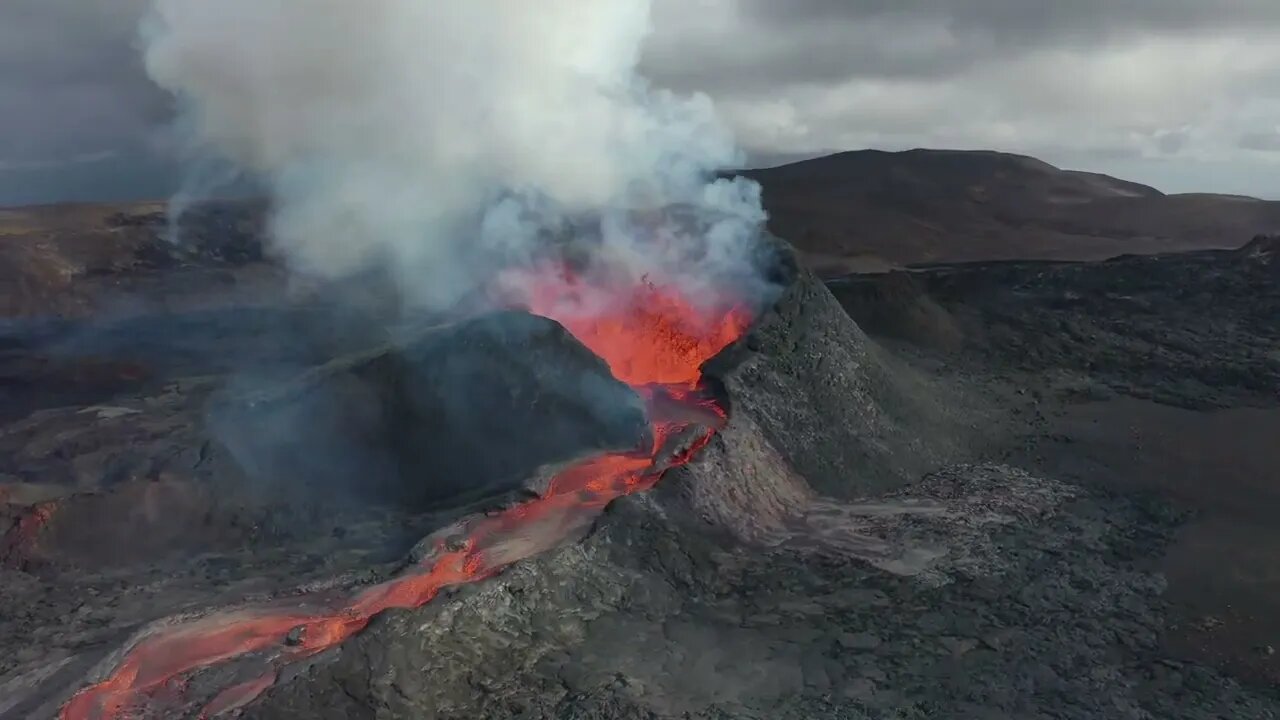Premium Only Content

The temperatures of molten lava range from about 700 to 1,200 °C (1,300 to 2,200 °F)
I can provide some information on how NASA supports international collaborations in space exploration and shares its findings with the global scientific community.
1. International Space Station (ISS): NASA collaborates with multiple international partners, including Roscosmos (Russia), ESA (European Space Agency), JAXA (Japan), and CSA (Canadian Space Agency), to operate the ISS. The station serves as a platform for scientific research conducted by astronauts from various countries.
2. International Cooperation Agreements: NASA engages in partnerships with space agencies worldwide through formal agreements. These agreements promote collaboration in areas such as astronaut missions, spacecraft development, and scientific research. Examples include the Artemis Accords and NASA's existing international partnership agreements.
3. Data Sharing: NASA promotes the exchange of scientific data and findings with the global scientific community. Researchers from around the world can access NASA's extensive archives of space data, including satellite observations, planetary missions, and astrophysical studies, through various online portals and databases.
4. Collaborative Missions: NASA often collaborates with international partners on major space missions. For instance, the Mars Science Laboratory (Curiosity Rover) mission involved contributions from numerous international researchers and institutions. These collaborations help leverage expertise and resources from multiple countries and increase the scientific output of such missions.
5. Joint Research Projects: NASA supports collaborative research projects involving international scientists and institutions. Through various programs and grants, NASA fosters scientific cooperation to address fundamental scientific questions and advance our understanding of space exploration-related topics.
Overall, NASA actively engages in international collaborations and strives to share its findings and knowledge with the global scientific community. These efforts promote cooperation, enable scientific advancements, and increase our understanding of the universe.
#NASA
2. #Space
3. #Astronomy
4. #SpaceExploration
5. #NASAmissions
6. #Astrophysics
7. #RocketLaunch
8. #HubbleTelescope
9. #Mars
10. #Moon
11. #ISS
12. #PlanetDiscovery
13. #StellarObservation
14. #SpaceScience
15. #NASAHistory
16. #Exoplanets
17. #EarthObservation
18. #SatelliteImagery
19. #Astronauts
20. #SpaceTechnology
21. #SolarSystem
22. #Galaxies
23. #NASAInnovation
24. #SpaceExplorers
25. #Cosmology
26. #Astrobiology
27. #SpaceNews
28. #NASACommunity
29. #Astrochemistry
30. #SpaceMissions
#SciFi
#NASAInspiration
33. #CelestialBodies
34. #NASAImages
35. #SpaceEducation
36. #RocketScience
37. #NASAResearch
38. #Stargazing
39. #AstroPhysics
40. #PlanetaryScience
41. #SpaceX
42. #AstroNerds
43. #NASAUniverse
44. #AstroGeology
45. #SpaceExplorationDay
46. #SpaceFans
47. #NASAInsights
48. #NASAFamily
49. #AstronomyLovers
50. #NASAExpeditions
-
 LIVE
LIVE
TimcastIRL
2 hours agoTrump Orders Specialized National Guard Units To Combat Crime In Cities, Dems Furious | Timcast IRL
26,051 watching -
 LIVE
LIVE
SpartakusLIVE
4 hours ago#1 Rocket CHAMPION of Verdansk wields UNSTOPPABLE new META
347 watching -
 LIVE
LIVE
Barry Cunningham
3 hours agoPRESIDENT TRUMP MADE TODAY A VERY BAD DAY TO BE A DEMOCRAT!
8,832 watching -
 LIVE
LIVE
Flyover Conservatives
21 hours agoFrom Cool to Cringe: How Democrats Lost America’s Ear | FOC Show
263 watching -
 8:19
8:19
MattMorseTV
7 hours ago $0.90 earnedTrump is ACTUALLY DOING IT.
3.82K19 -
 LIVE
LIVE
ZWOGs
9 hours ago🔴LIVE IN 1440p! - Tarkov w/ Casey & crgoodw1n, Kingdom Come Deliverance, & More - Come Hang Out!
82 watching -
 LIVE
LIVE
We Like Shooting
13 hours agoWe Like Shooting 625 (Gun Podcast)
129 watching -
 1:45:02
1:45:02
Glenn Greenwald
4 hours agoIsrael Slaughters More Journalists, Hiding War Crimes; Trump's Unconstitutional Flag Burning Ban; Glenn Takes Your Questions | SYSTEM UPDATE #504
87.9K86 -
 1:29:31
1:29:31
Killerperk
1 hour agoRoad to BF6. Come hang out #regiment #bf6
1.35K1 -
 LIVE
LIVE
Jokeuhl Gaming and Chat
2 hours agoDARKTIDE - Warhammer 40k w/ Nubes Bloobs and AoA
39 watching